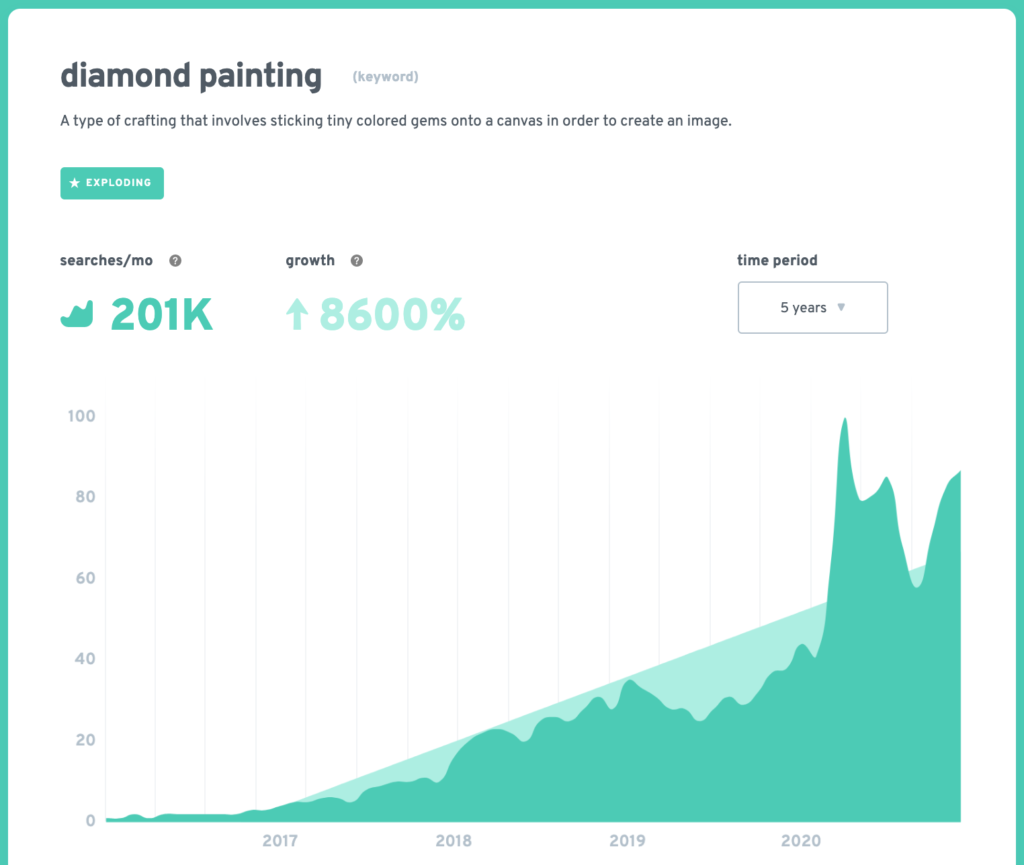With 40% annual returns & high profit margins, you’d think this asset class would be more widely recognized.
Welcome to issue #3 of Alternative Assets. Each week we bring you unique investment ideas, with a big focus on digital assets.
I hope you all enjoyed the last issue one buying distressed websites. Thanks to your shares, I’m happy to announce I’ve just passed the 10,000 subscribers mark!
…HAH. I’m kidding. My subscriber count is…considerably less than that. ? But in all seriousness, it brings up a question I’ve been thinking about lately: Why isn’t the website investing space as a whole bigger?
Don’t get me wrong, I’m on the front lines of this industry, and believe me – we are clearly having our moment right now. The drumbeat is finally getting much, much louder, with bigger names (and bigger money) starting to pay close attention. More on that in a future post…
Yet, I can’t help but feel there is something fundamentally holding this industry back. Something that doesn’t quite mesh with our current zeitgeist, even if the winds are changing as we speak.
There’s a certain look people give me when I tell them what I do. Anyone who has spent time in this space knows exactly what I’m talking about. The slight cock of the head, the raised eyebrow, the quizzical look in their eyes… “So wait, you buy websites? Who’s selling them? And hang on a minute…you sell them too? Who buys them?” (God forbid there should be an entire market for this stuff!) ?
Then I tell them websites return 40% per year on average, and their ears perk up…
Table of Contents
A few reasons the industry isn’t bigger
It’s not truly passive income.
I don’t care what anyone says: There is no such thing as a truly passive website investment.
Sure, running a content site is more passive than running other online businesses, but let’s not kid ourselves: it’s far less passive than dumping money into stocks and watching your money grow over time (or for that matter, daytrading cult stocks).
There are lots of sellers who market content, dropship, and FBA sites as “100% passive!” It isn’t true and degrades the buying experience. This asset class takes some effort – and for many people that’s completely fine. While there’s certainly a passive aspect, you get back what you put into it – just like with any other active investment. Which brings me to the next theory.
There’s too much focus on content sites.
Spend enough time in this industry and you quickly realize one thing: The vast majority of the focus is on content sites. It feels like 90% of it is advertising-this and affiliate-that. Which naturally means it scares off people who don’t understand this world. It feels like Ecommerce, SaaS, and other business models are getting unfairly neglected.
There’s no good reason for this. Especially right now.
First, if you agree website investing is having its moment right now, then understand Ecommerce is leading the pack. As you may have heard, since the virus hit, Ecomm has been through the roof. In fact, Shopify sites alone account for nearly a quarter of all businesses for sale on Flippa.
Shopify’s reach is nuts:
— ?? Stefan von Imhof (@stefanvonimhof) July 30, 2020
There are nearly 1,100 Shopify businesses for sale right now on Flippa.
That’s 51% of all ecomm stores for sale – and a full 22% of all live Flippa listings, period.
..And Shopify already has their *own* marketplace for buying/selling Shopify stores!
Second, as a website investor, you don’t need silo everything. Why limit yourself to one bucket? Your site can both sell ads and dropship products. Your site can start with a subscription model and layer in an affiliate network. You can have with affiliate links for some products and sell DTC for others. Diversity of revenue is good!
Some of you may know I came from Ecommerce, back when Shopify’s website looked like this. I sold an Ecommerce business on Flippa back in 2012, but still have a huge love for Ecommerce today. Sure, there’s a bigger cost component to Ecommerce businesses, and you have to watch your bottom line much more closely. But the sites are quicker to set up, you realize revenue much quicker (no waiting for SEO efforts to materialize, or waiting in the 6-month Google “penalty box”), and the litany of new tools makes managing Ecommerce sites far easier & less time-consuming than it used to be.
Once you realize that websites can evolve into whatever you want them to be, you start to understand that the only limit is your own creativity and hard work. You don’t need to follow the same path as everyone else. Put pieces together. Make things happen.
So yes, I think the ultra-focus on content sites is scaring a large percentage of people away. But, there’s something far bigger going on here…
It goes against what we’ve been taught about entrepreneurship.
This is, by far, the biggest reason.
I’ve heard it a million times. “I don’t get it. Why would anyone sell a business that’s doing well?” The question alone invites a level of skepticism, which oddly enough is not applied to other investment classes.
Think about it: When was the last time someone asked the same thing about stocks or real estate?
“Wait, your house is increasing in value? Why would you sell it?”
“Hang on, your tech stocks are up 500% over the past few years? Why would you trade them?”
We all know there are tons of reasons people sell stocks, real estate, and a zillion other assets every single day. People easily understand the concepts of cashing out, trading up, opportunity cost and marginal utility. Nobody ever questions it. It’s totally normal.
So why don’t people apply the same principles to online businesses?
I think I know why. The fact is, we are taught from a young age that starting a business from scratch is the default, normal path of entrepreneurship. This has been reinforced through decades of business school and VC thought-leadership and media groupthink.
I believe this path is so heavily ingrained into our psyches that concepts like acquisition entrepreneurship are completely alien to most. As we all know: once you get it, you get it, and you never look back. But getting the industry over that initial mental hump is, and likely always will be, an uphill battle.
Frankly, a lot of it could just be a simple marketing problem. Which brings me to my last theory…
Nobody knows what the hell to call this stuff.
It’s true. The industry has a naming problem – and one that can’t be solved by a single company.
Is it “Website Flipping?” Okay, well, what if you have a holding strategy?
Is this “Website Investing?” Well, what about apps, Chrome extensions, Steam games, social media accounts? etc…
Are these “Digital Assets?” Maybe “Digital Properties?” Hmm…lots of connotations to real estate. These are fine, but don’t seem to easily resonate or stick.
The truth is will likely never be one single all-encompassing term that works. Obviously I’ve settled on Alternative Assets. But another term I’ve come around to love is Microstartups.
And on that note, I recently had a chat with a very talented person who is starting to coin that very term…
An interview with Hari Dulipudi
If you haven’t heard of @1Hakr, I suggest getting him on your radar now. Hari is a Sydney-based, self-funded indie maker & microstartup king with a bunch of successful sites.
I first learned of him through Visalist, which is the easiest way to find visa/passport requirements for every country on earth. Since then he’s launched Simpleops, which is a performance monitoring tool that is off to a fantastic start. And he has like 3+ other highly successful microstartups as well.
I had a short but fun Zoom chat with Hari last week, where we discuss how he defines microstartups, the advantages of building microstartups over VC-backed companies, how he manages his time between them all, and what his end goals are.
Since he’s such a brain I decided to record the session. You can listen to our 15-minute conversation, or read the transcript (thanks to Rev for the great transcription).
Other news
- GLG Research has begun branding themselves as “The World’s Knowledge Marketplace.” Their clients must be poking around this space, because I recently had a call with one of them about website investing. Anyone can apply for membership. If accepted into their network, you’ll be paid at the hourly rate you specify for any clients that want to speak with you.
- Exploding Topics has released a long-awaited Pro version, which tells you new trends, topics, and gaps in the market no less than 6 months before they go mainstream. Along with similar companies Trends.vc and Glimpse, Exploding Topics is a great way to find emerging opportunities, secure domains, and spin up or buy niche sites before everyone else. (I can confirm the power this has: Last year I made a weak offer on a Diamond Painting website when I noticed the search term had been picking up steam. My offer was rejected. Sure enough, 3 months later, I saw the term had exploded in the ET newsletter. I tried making another offer on the site, but yeah…too late. No chance that guy is selling for the same price now!)
How’d you like this issue?












